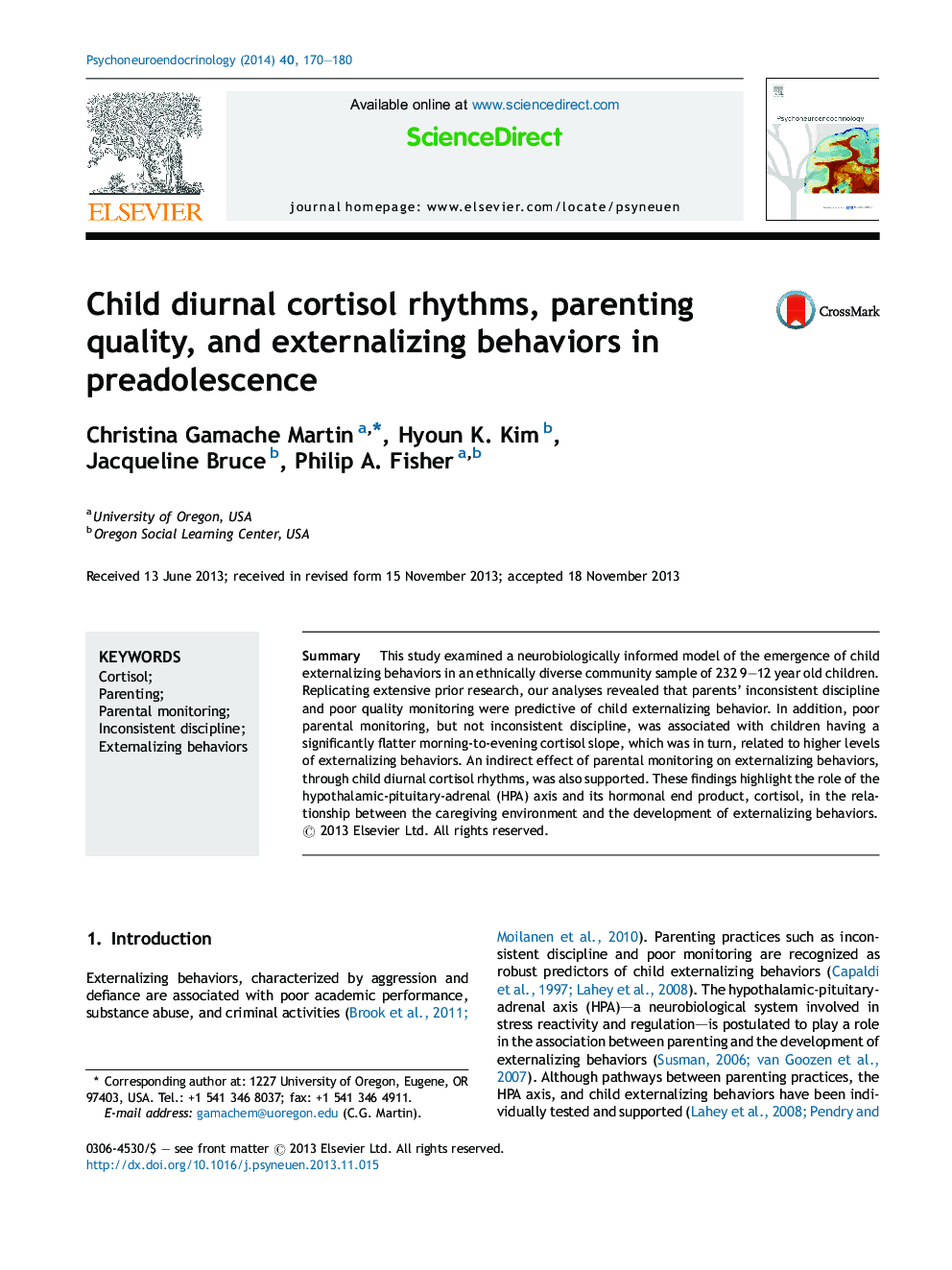| Article ID | Journal | Published Year | Pages | File Type |
|---|---|---|---|---|
| 335776 | Psychoneuroendocrinology | 2014 | 11 Pages |
SummaryThis study examined a neurobiologically informed model of the emergence of child externalizing behaviors in an ethnically diverse community sample of 232 9–12 year old children. Replicating extensive prior research, our analyses revealed that parents’ inconsistent discipline and poor quality monitoring were predictive of child externalizing behavior. In addition, poor parental monitoring, but not inconsistent discipline, was associated with children having a significantly flatter morning-to-evening cortisol slope, which was in turn, related to higher levels of externalizing behaviors. An indirect effect of parental monitoring on externalizing behaviors, through child diurnal cortisol rhythms, was also supported. These findings highlight the role of the hypothalamic-pituitary-adrenal (HPA) axis and its hormonal end product, cortisol, in the relationship between the caregiving environment and the development of externalizing behaviors.
